Category — Features
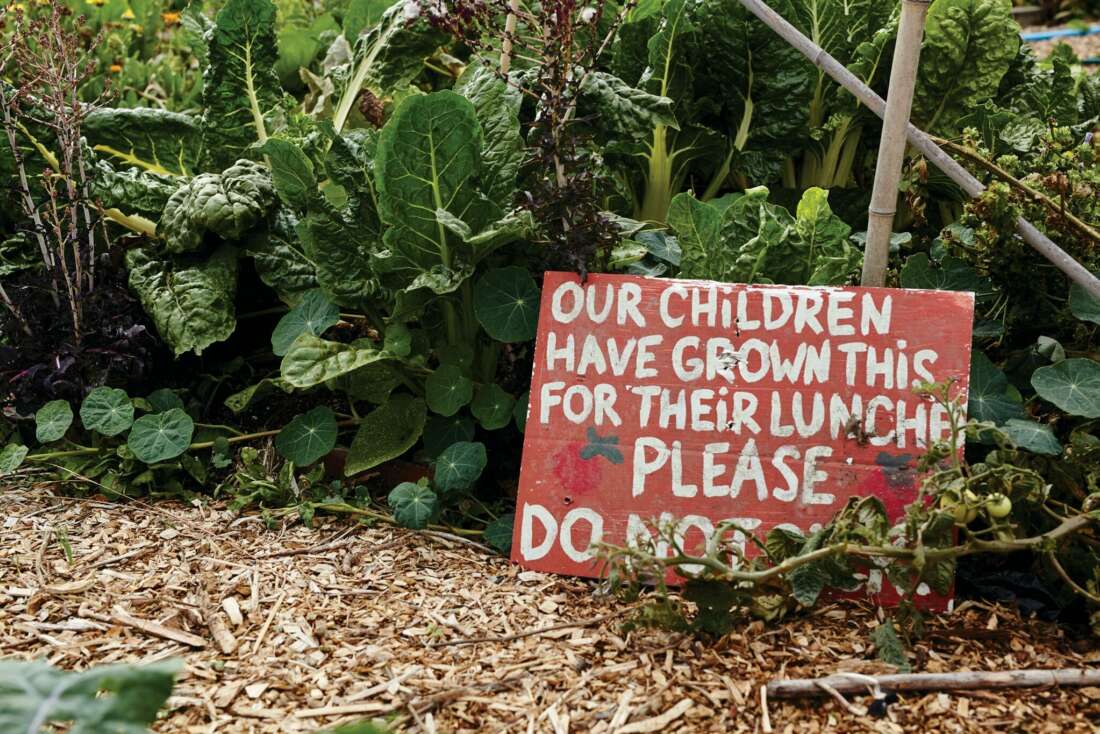
Together, we grow
Katherine Descours visits Julia Milne of Common Unity, to see what’s been going on since Stone Soup was there last, in 2016. Lightly edited for clarity and length.
Common Unity began in 2012 as a small pilot project at Epuni Primary School in the Hutt Valley, just north of Wellington. They started by asking the question: “is it possible for a community to come together to grow enough food to feed their own children?” Eight years on, it has grown into a significant community-based urban development project, growing food, skills, leadership and enterprise. Since 2018, it has been based in The ReMakery, a community enterprise hub which houses its numerous projects including Beeple Honey Collective, ReCycled Rides and The Common Grocer.
SSS – When Stone Soup first visited you in 2016, Common Unity was based at Epuni School and was leading a few small community projects. Where have the past few years taken you?
It has taken us into many backyards, different organisations, multitudes of urban farms, and into our prison. We work to our mission and vision in a way that is very much grounded in our own value system. Reflecting at this time, we realised that Common Unity works because its values align philosophically with people’s hearts and thinking right now – and what it is that we really need to have – thriving communities. This means deeply circular systems, where no one is left out of the actions or conversations around the idea that we can ensure that our children have a village. That action around our children isn’t always just about food, but food is such a great activator, and it enables us to reach into places and aspects of very under-resourced communities in a way that is really joyful and enlivened. We don’t need to talk about deprivation or poverty because actually, that’s not our experience as a collective of people.
SSS – What has been the biggest change that you’ve seen for Common Unity and the community, in the last 5 years?
Engagement – it’s pretty spectacular. We have visits from children that started at the first farm over at Epuni. It is just a delight to have them come visit us and share what that meant for them, and how it sits with them still. We also watched that first evolution of the Epuni school farm and realised there is a maturity of relationship and food literacy the Epuni students and school now have because that food culture is deeply embedded. We realised there is a significant difference in their school, which we know because we work alongside other schools with similar aged children, and their relationship to food is different.
We needed to leave home, though. Some of the projects had become commercial and we couldn’t be based at the school, and we realised that actually, what we had learned was of value, and wider than one school. We thought by moving out of home, it would give us more opportunity to engage, and just do more really – to scale up, and we needed our own place to be. The plaster factory over the road became available, we didn’t actually have any money, but we negotiated that the land owner became a partner with us. They gave us a lease free period which enabled us to bed-in, which was an extraordinary act of kindness.
SSS – What is your relationship with Epuni school, now?
We are still there – Hannah, the farm manager, goes over one day a week and has a whole bunch of volunteers that go with her. They are doing some cool things around a citizen’s approach to climate change, like measuring carbon in soils, really exciting. I would love to see that everywhere – I just think it should be completely embedded – a good citizen cares for the soil, these aren’t fringe activities – they need to belong as part of the whole education system. I also know we are interrupting and changing systems and that’s really exciting. We have some really unique relationships and stakeholders: we are partnering with people like Corrections, and Kāinga Ora and Regional Public Health. In the past, these would have been really challenging institutions to be working with, but there is a sense of trust and really great personal relationships where we are just being opened up to opportunities where we can test and try things.
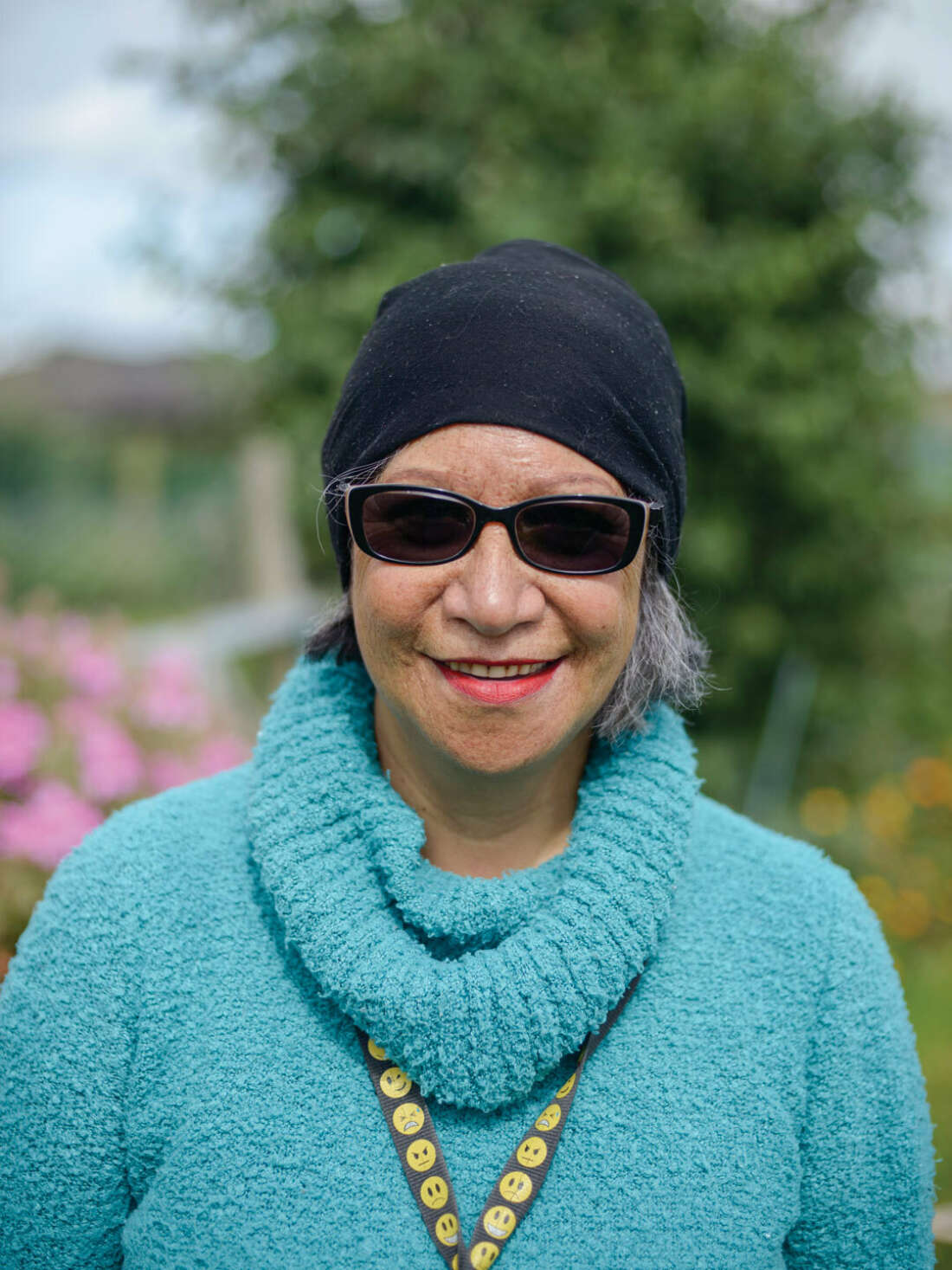
SSS – Have you expanded to other schools since Epuni?
We now work with five other schools. COVID was a very instrumental time for us and it allowed us to mobilise really quickly at Level 4, to develop collaborations, particularly around our Kokiri marae relationship. We are still working together to ensure the whanau they care for — which are mostly those with health needs or homeless living in motel units — can continue to be fed. That’s a beautiful partnership, and it is enabling us to walk beside another community, as they set up a pātaka kai and a food hub of their own.
SSS – Were you operational through the COVID-19 lockdown?
We got an exemption and we developed toolkits to enable other community groups to get exemptions because we realised we needed more kitchens open and there were many people struggling with understanding how to do that. And we started using the food, because we knew where it all was. We had those relationships in play and we also have these massive gardens out in Rimutaka prison. So the men at Rimutaka — the men that grow with us there — ended up being stakeholders in their local community, to get everyone fed. We also know what that meant for them in terms of their wellbeing. Prison was, at Level 4 and Level 3, an especially difficult time, because there was no contact or visits, and no support. So all of a sudden, we had our prison farmers deeply connected to getting whānau fed.
SSS – Can you tell us more about the work you do with the prison? When did that start?
It started three years ago. We have five farms up there. We send our farm manager Hannah up once a week, and she delivers an NCEA pathway. The men grow copious amounts of food that goes back through our kitchen and is completely in service to the community. During COVID we did 23,000 meals, 70% of the ingredients for that was produced in partnership with the men at Rimutaka.
“with knowledge, fertile soil and time, you have the bones of something pretty extraordinary”
SSS – How did that initiative come about?
We called a hui in the Hutt Valley around food, and we wanted to kick off urban kai, and just look to see what was possible in the food space. We’d had a bit of thinking around what our strengths are here in the Hutt, and we identified three: We have this incredible fertile soil. We have a lot of whānau living on benefits or have time available, and time is really important. When you’re not transacting with money, you tend to be transacting with time. We also had community members with knowledge. So with knowledge, fertile soil and time, you have the bones of something pretty extraordinary. We proposed a model whereby we took on backyards and developed some urban farms, put them right where they needed to be with loads of education, so families could learn how to feed themselves – with all surplus returning to the wider community via our kitchen.
SSS – How many of those little urban farms exist?
There’s heaps. I want to talk specifically about one of the most successful models, as we played with different ideas. This was the agri-hood, where we connected five families in Naenae who didn’t know each other before, but they grow together now. And that growing together doesn’t just look like food. That looks like support for one another, that looks like shared resources and it also looks like an increase of wellbeing. There are a lot of fragility and mental health challenges in under-resourced communities. Again, this joyous experience of coming together around food, actually there are a whole lot of other things that shift.
SSS – Sounds like exactly what Common Unity started as – food, the great connector, but it’s not the only thing that connects people together.
No, no it’s not. Because it’s never just about food. Just as a hungry human in our community is never just about food, it’s a symptom of a broken system, and that symptom needs interruption at many points, all the way through be it the economic system, the transport system… but the place where we can interrupt that trajectory is around connectedness, and around changing narratives. So that we stop defining ourselves by what we don’t have, because actually what we have here is so much.
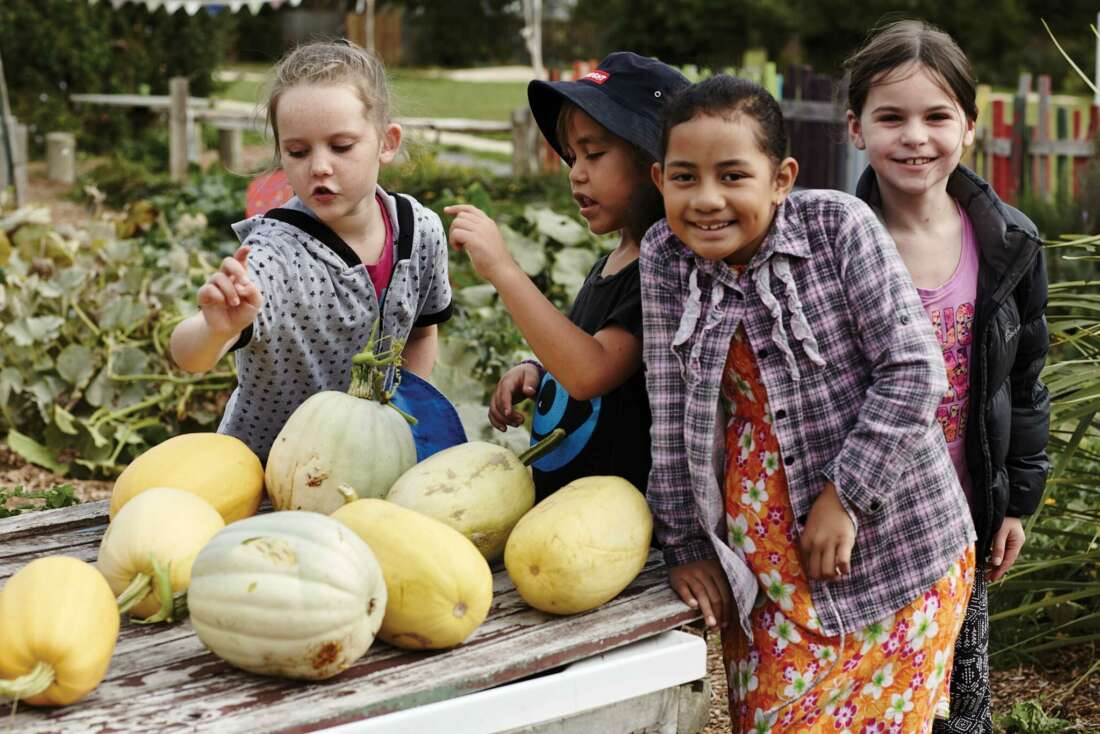
SSS – In our last conversation with you, we spoke about the concept of wealth and different ways of defining that.
We are still very much set in that and exploring that and encouraging our community to regard their situation differently. It is a mental shift, it’s a hard shift. Nothing will change in our communities until we undergo healing, and that healing can look like the healing of brokenness within our families and neighbourhoods, but it’s also the healing of the connection back to the whenua, and the healing of the soil itself. And all of these things are connected and reflected in one another. Our children can not thrive if our soil is poisoned.
SSS – You’re preparing for an annual Community Day event this weekend – how did this come about?
What started off as a seedling sale in collaboration with our farmers at Rimutaka prison has now become a festival and this is its third year. It’s a day of celebration – not only do we have seedlings grown at the prison that come back to the community, but we have a whole bunch that people around here have propagated collaboratively. And the coming together and different conversations around that action is so much fun. We also showcase some of the other things that we are involved with at the prison, various projects we’re able to make available for sale and for gifting. Like Rimutaka prison manuka honey from last summer, that we have branded under their own label – that feels really special. It’s also about helping the community understand that prisons should not sit on the periphery of the village or communities and simply be homes for people who have committed crime. We need to understand that a healthy community will take on the responsibility and care and contribute towards the rehabilitation of bringing those people back home into the communities. That we need to be creating as many bridges as we possibly can. Just as we throw away too many resources in this world, we throw away too many people. As a community, we should be measuring our wellbeing and success through our incarceration rates.
SSS – The theme of this edition of Stone Soup is emergence. Thinking about your experiences during COVID, but also beyond that, what has been that feeling of emergence for you?
We already knew pre-COVID there was a need for greater understanding around how to establish food hubs in communities, because we had so many people approaching us from around New Zealand, wanting to understand what we were doing and how we were doing it. What that now means for us (post-COVID) is realising we are a food and learning hub, here, now. So we’re not looking to increase our outputs in terms of meals, we are looking to increase our outputs in terms of the development of resources and systems, where we can share what we have learnt and connect with others who are also learning. But if we are trying to work to this idea that every neighbourhood or community has an accessible food hub within walking distance, what would that look like? We think we’ve figured out what needs to be in play in order to achieve that. Right now, that’s the development of toolkits and resources that can enable others to open their own versions. Often they’re already in play in communities but they’re not connected, so it’s working with this understanding that they’ll all look different.
SSS – What does that guidance or toolkit look like?
The toolkits are all around those really practical ‘how-to’s – how to develop a self-sustaining urban farm model that means you can fund your own. Often, we find we lose momentum and good things fall apart when the funding is lost or taken away or ended, so how do we create systems right from the get-go that are self-sustaining? We’ve got some good thinking around that and we’ve tested and tried those models that can now be of service to others. We also know we have to lose the idea that we need large supermarkets everywhere – so what do food cooperatives look like? We’ve developed and shaped manuals anyone can pick up and use to implement in their own neighbourhood, because once we start owning our own food, or being sovereign over the systems that provide the food to us, then we’ve changed the whole game.
We know whether it’s COVID, or whether it’s climate change, we have to shorten up the supply chains, and as a local community we must understand where our kai is.
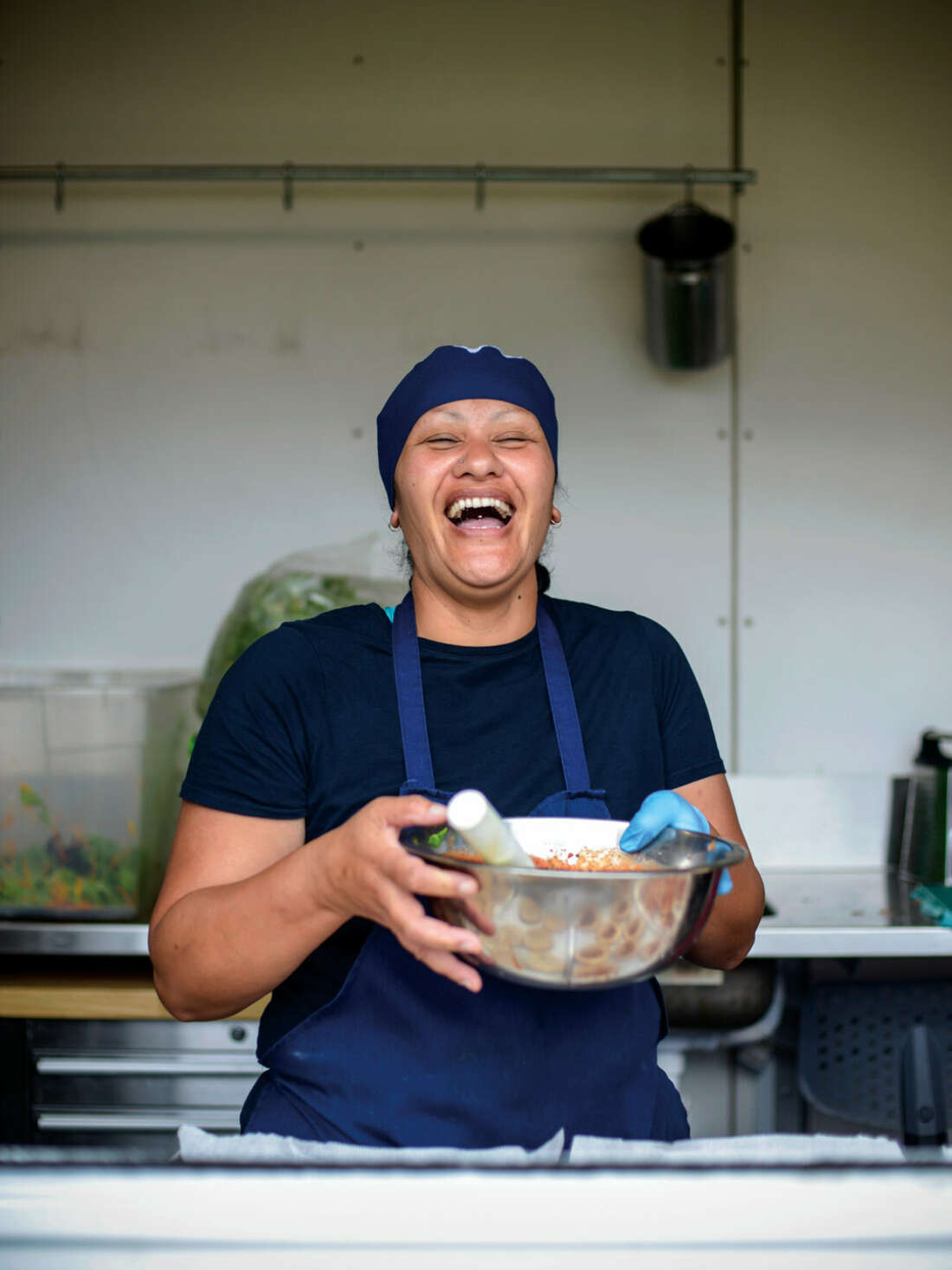
SSS – Have you found a lot of enthusiasm around that?
There’s been a lot of enthusiasm, and there’s also a lot of panic. I don’t feel panic because I just think there has never been a better time to be working together. And what COVID has brought is this wholeheartedness – being able to collaborate where we haven’t been able to before. We’ve seen the enormous increase in people putting in their own backyard gardens. I’ve also seen shifts flowing out of government. There was a lot of funding that came out wanting to activate more community-lead responses, because what we saw during COVID was this enormous uptake in people needing food parcels – but we can’t live on food parcels forever. Finally I felt we were heard in this space, alongside other agencies and organisations that have been trying for years to be heard.
What is our action plan around helping families to be more food sovereign? There’s a big gap there even now – how do we transition everyone off emergency food parcels, and away from the food charity model, and how do we challenge the food charity model to collaborate with us in that space? Because one thing that we have noticed with funding, and how the Government has funded historically, is that it creates silos, and it has absolutely created an industry of poverty.
SSS – How do you think we can shift away from the service-model?
We have to be able to listen to the things that worked, and the things that didn’t work, and a lot of that is around the ability to be agile. But that’s part of being a learning hub, it’s not just learning with the community – we want to learn with Government, and help them.
SSS – What do you think that would look like?
It looks like trust, and knowing just as many challenges are deeply embedded and have possibly been for a really long time, so are the solutions. It’s about activating or creating space for communities to address these things themselves. And disincentivising the mammoth amount of service contracts that are dropped in and umbrellaed over communities without any collaboration, which just leads to linear systems and dependents, and does nothing to enhance the mana of our people. I would like to see much more regional funding allocations for communities to self-determine using a strengths-based approach.
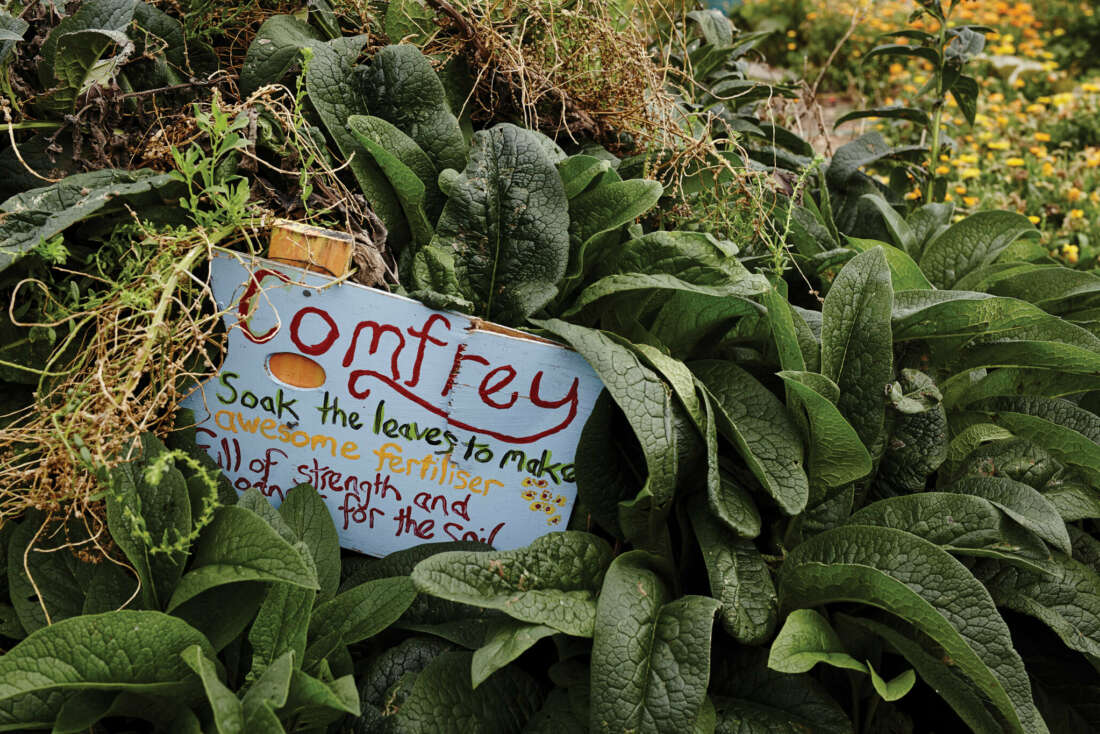
SSS – Do you share any of your resources?
Yes, we’re just in the process of establishing a regional food resilience network that will try to engage with nine different councils, and we’ve partnered with regional public health in order to explore that. That’s a really significant project.
SSS – Did you ever think this is what Common Unity Project would become?
No, but I just laugh now, because I realise this is what working with the metaphor of growing looks like – a dangerous one!
SSS – You mentioned in the last conversation with us that you hoped you could one day step back, but five years on you seem to still be right in the middle of it! How do you feel about that?
Well, except I’m not! I’m just the helpful person that sits in the office, writing and observing and connecting, but it’s everyone on the ground. Actually, if I stepped away right now, the food and the garden and all of the lovely things that are activated around that would still exist.
SSS – Are you proud of that?
I am totally proud of that. And that’s not anything I feel I created myself. I’m proud because we created it together. You’ve just enabled the conditions for something to thrive. The community gave me a piece of art that says “you are what you defend”, that’s really it, that is my role now. We have values in play, we have a philosophy more and more people seem to respond to, particularly this year and at this time – we’ve all had a bit of a fright and realised more than ever we need one another.
“It’s not just about growing things in the soil, it’s about growing things in each other’s hearts”
SSS – What have been the lessons that you’ve learnt, or the mistakes that have taught you the most?
Start with the end in mind always – that is a really valuable lesson. How are you going to step out and handover? Who do you have there along the way – there actually can’t be too many hands and hearts involved in any specific project. Also, despite the bumps along the way – because they do occur – the most important value is courage – ‘okay so that didn’t work, be courageous, just be courageous all of the time, and be courageous together”. And I really have that now – I felt once upon a time I was trying to change something by myself, but it was amazing how quickly people came alongside me, both to do the mahi, but to learn and develop as a human being, and that’s been a real gift – the amount of mentoring that has gone on. It’s not just about growing things in the soil, it’s about growing things in each other’s hearts. And often the community will talk about that – what happens with the various interactions and friendships and learnings around here, it is profoundly effective in our hearts. And I realise I once would have had a lot of fear about trying new things, but actually, I don’t have that fear of failure anymore, fear isn’t something that comes to me naturally anymore – just radical courage. Because actually, there is an awful lot at play here, and things are not easy for our children or our families out there, so we need to be really spirited about trying to respond in ways that are agile and grounded in kindness towards one another.
SSS – If we came back to you five years from now, what do you think Common Unity could look like? What would you want it to look like?
I think this building and this space will be connected to a whole lot of community-led food systems that are not only nourishing tummies, but enriching wellbeing up and down New Zealand. Because already emerging is a burgeoning network of people, that are growing their own systems and doing it for themselves. And there is a story of sovereignty in that. We are taking ownership and responsibility and kaitiaki of that food experience. We are not reliant on a system that has proven itself to be broken over and over to be feeding us. We are recognising the mana whenua, we are recognising what once was, and we are listening deeply to the story of the old way, because we have dropped the narrative that we knew what we were doing.
Photography: Maximilian Scott-Murray & Aaron McLean